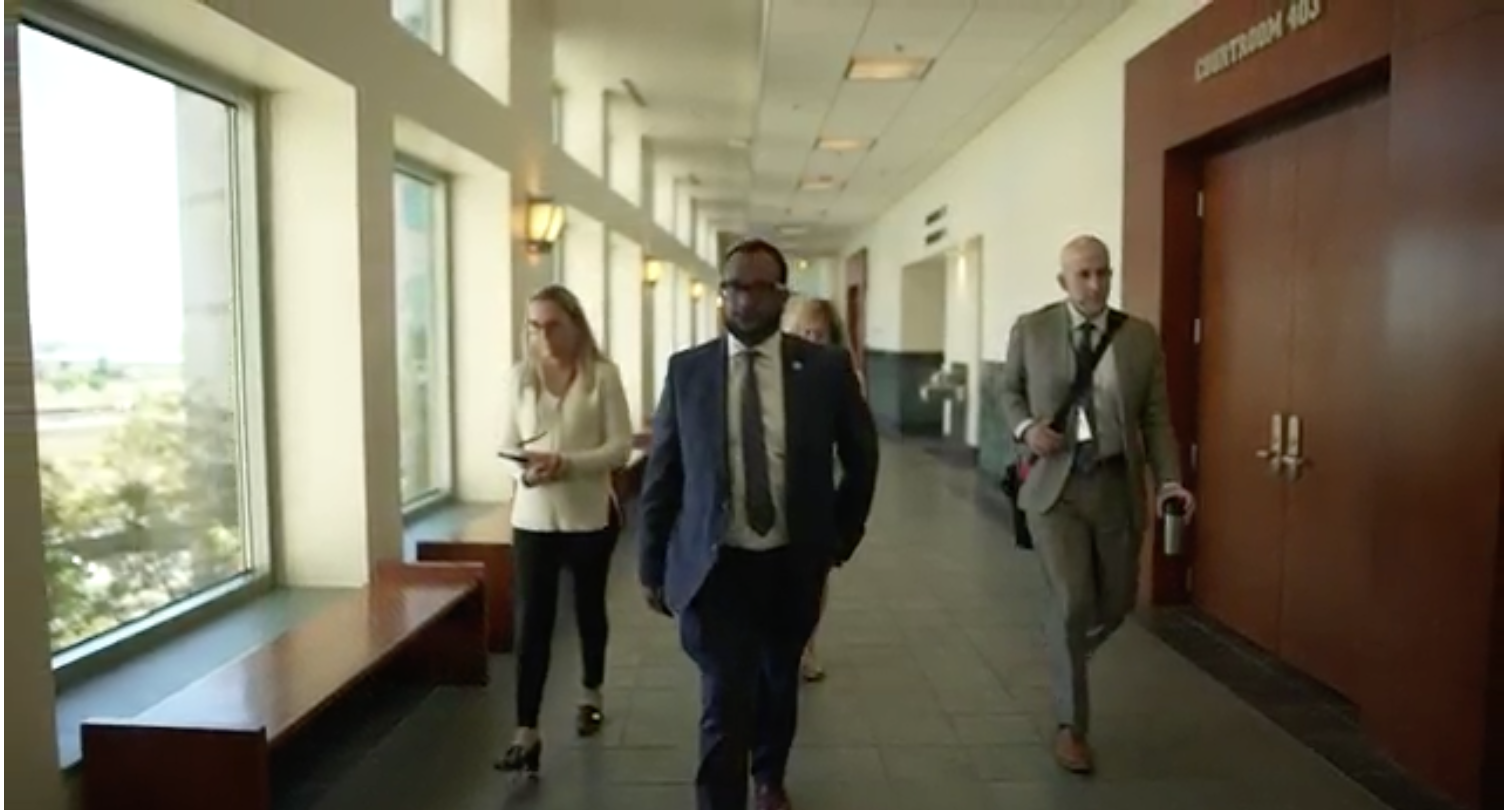‘Violent subdual and restraint’: Prosecutors’ final witness in Aurora officers’ trial takes stand

Prosecutors’ final witness in the case of two Aurora police officers on trial for Elijah McClain’s death provided the most forceful opinion yet that their struggle with him contributed to the 23-year-old man’s death.
Attorneys spent all of Thursday questioning Roger Mitchell, the chair of pathology at Howard University’s College of Medicine and a former chief medical examiner for Washington, D.C. Mitchell said he believes McClain’s death resulted from complications of the ketamine injection he received after “violent subdual and restraint,” words that came to symbolize his certainty about the role of officers’ actions.
“What’s the proper classification of manner of death for Elijah McClain?” asked Senior Assistant Attorney General Jason Slothouber.
“Homicide,” Mitchell replied.
Elijah McClain already at risk of death before ketamine injection, physician says
Mitchell’s opinion stands in contrast to that of the forensic pathologist who performed McClain’s autopsy, who has maintained his manner of death as “undetermined.”
Aurora Police Officer Randy Roedema and former officer Jason Rosenblatt each face charges of assault, manslaughter and criminally negligent homicide in McClain’s death. The case accuses them of stopping him the night of Aug. 24, 2019 as McClain walked home from a convenience store and grabbing him within seconds.
Roedema and Rosenblatt are accused of not calling in medical care for McClain when he cried out he could not breathe after they subdued and handcuffed him. The first officer to grab McClain, Nathan Woodyard, will face trial in a separate case. Woodyard is also accused of putting a type of neck hold on McClain that cause him to temporarily lose consciousness.
The three officers had responded to a 911 call by someone who saw McClain wearing a black mask and waving his arms, believing he was acting suspiciously. However, McClain was not suspected of a crime.
A paramedic who came to the scene injected McClain with the sedative ketamine. He went into cardiac arrest and stopped breathing, and died in a hospital a few days later.
Elijah McClain autopsy: Not certain if struggle with officers contributed to death
Roedema and Rosenblatt’s attorneys have sought to direct fault for McClain’s death to the paramedics for injecting him with ketamine without speaking to McClain or monitoring his vital signs. They have also said the officers struggled to restrain McClain as he violently resisted them. Body-worn camera footage captured Roedema and Rosenblatt telling their sergeant McClain had showed extreme strength.
Two Aurora Fire Rescue paramedics, Jeremy Cooper and Peter Cichuniec, face criminal charges in a third case. Cooper administered the ketamine, according to the indictment.
Throughout the day, Mitchell testified he believed McClain’s restraint and struggle with officers led to a “vicious cycle” of increased acid buildup in his blood as he labored to breathe, causing him to vomit and then inhale it into his lungs, called aspiration, because he couldn’t clear his airway while pinned on the ground. Mitchell watched body-worn camera footage of the struggle in segments and testified about how he believes McClain’s condition deteriorated throughout.
Mitchell said autopsy photos he saw showing discoloration in McClain’s lungs confirmed he had aspirated, which Mitchell believes happened at least in part before the ketamine injection based on sounds of McClain vomiting and then making “gagging” noises during the struggle. The officers’ defense attorneys challenged his conclusion, seeking to highlight the possibility McClain didn’t aspirate until after the ketamine injection.
“We have no medical evidence that he aspirated before ketamine, do we?” Sisson asked.
Mitchell agreed that no records definitively prove what happened when during the struggle. He explained his intention with viewing body-worn camera footage was to link “definitive” proof in McClain’s lungs of aspiration to when he believes it happened in the encounter.
Donald Sisson, one of Roedema’s defense attorneys, jumped on Mitchell’s public statements about advocacy for putting an end to deaths of Black people because of police brutality, his opinion that death certificates should have a possibility to designate deaths in custody and his view that they have been purposely undercounted. He pointed out Michell recently wrote a book about tracking in-custody deaths and has made TV appearances.
“How many times have you gone on these shows and spoken (on the topic) as it relates to a White person passing away?” Sisson asked.
“I haven’t,” Mitchell said.
Doctor declines to assign fault for Elijah McClain’s death
He did not shy away from acknowledging his public statements. On another round of questioning by Slothouber, he explained he believes that understanding causes of death with the goal of preventing them is a natural part of public health. Instances of smoking-caused cancer have gone down because of better understanding of the connection, he said. Deaths from car crashes and bicycle accidents have led to more people wearing seatbelts and helmets.
“Counting it allows for us to prevent it,” Mitchell said.
Slothouber did not finish his re-direct questioning of Mitchell, and will resume Friday morning.














